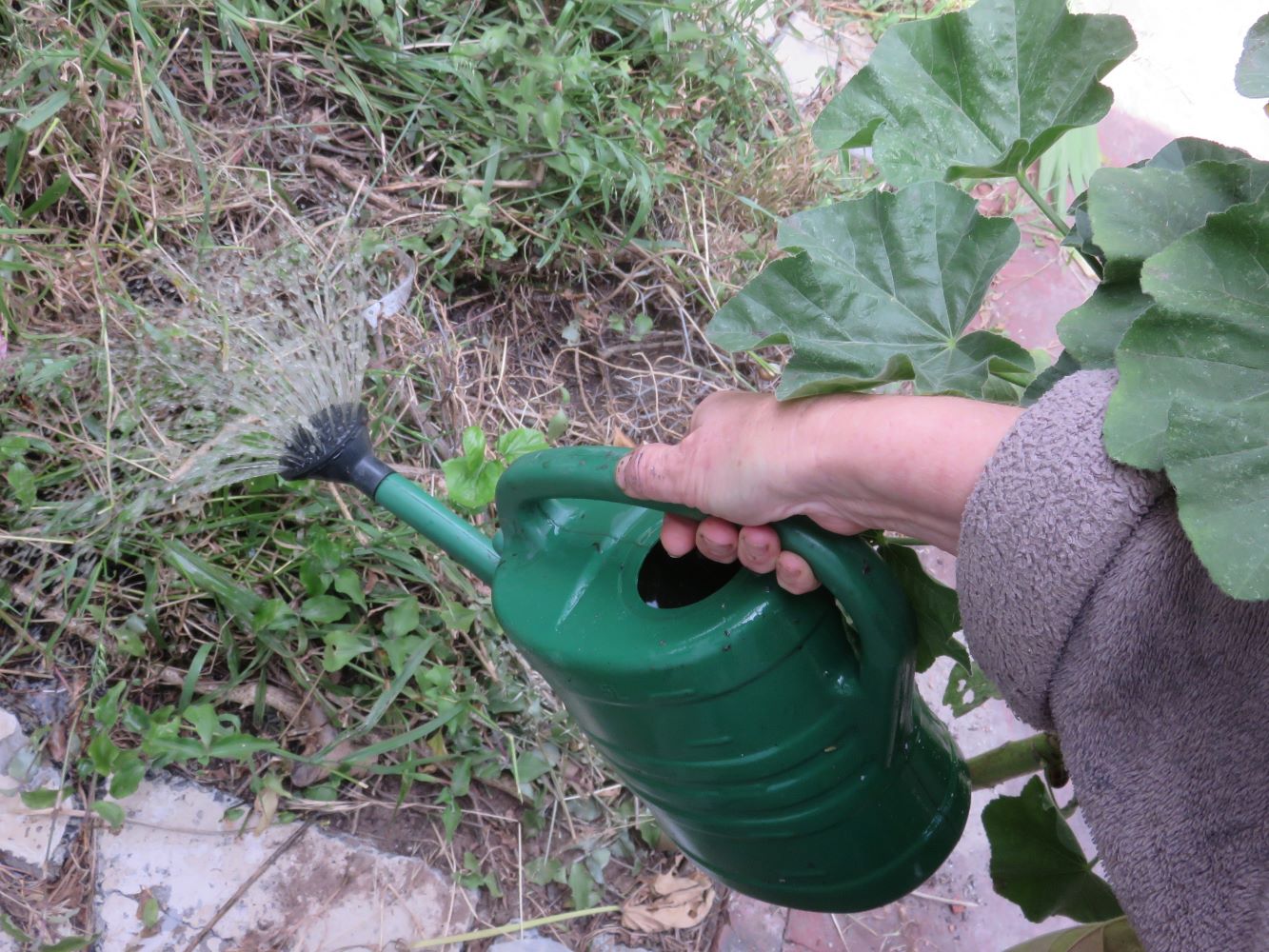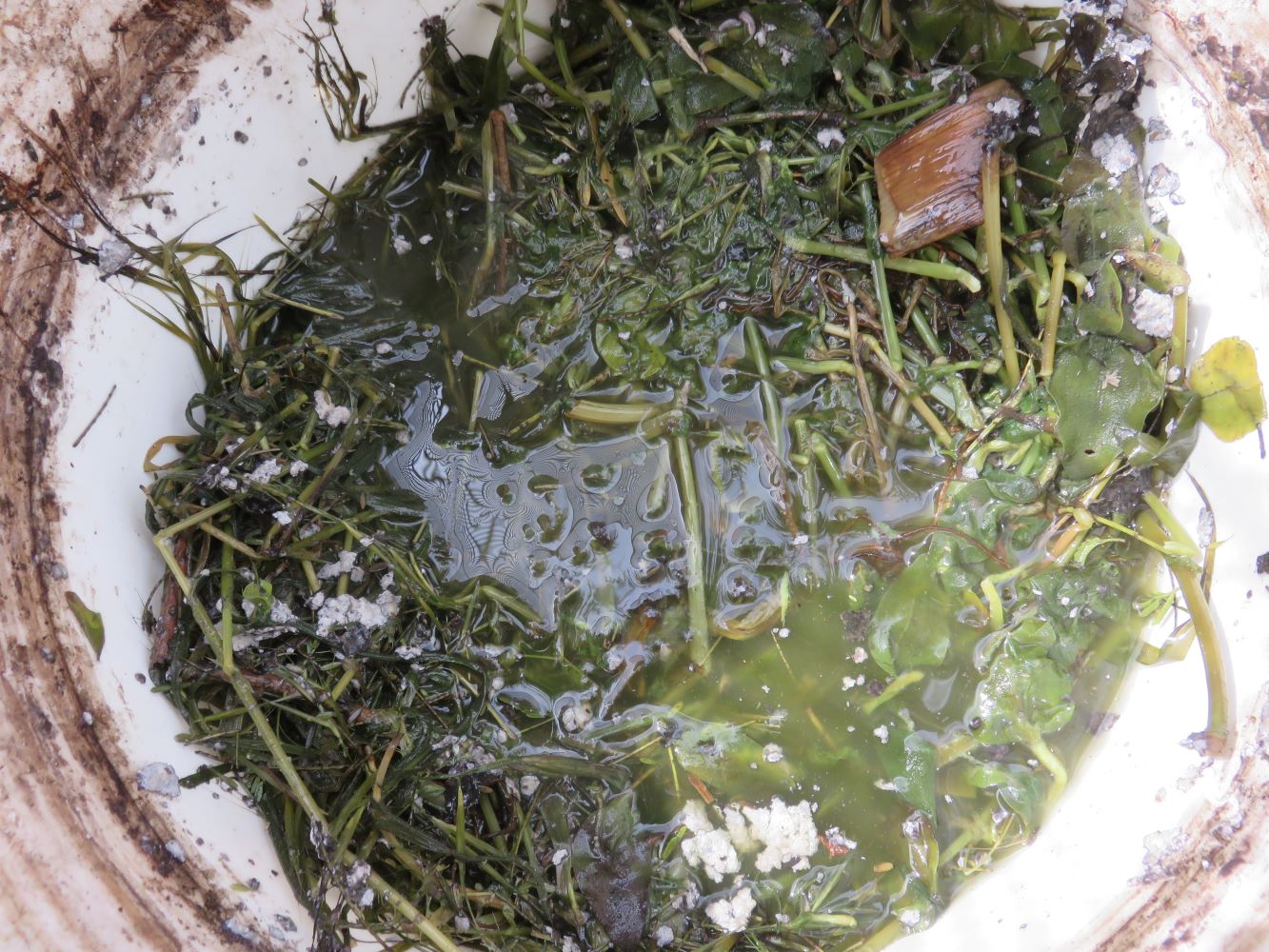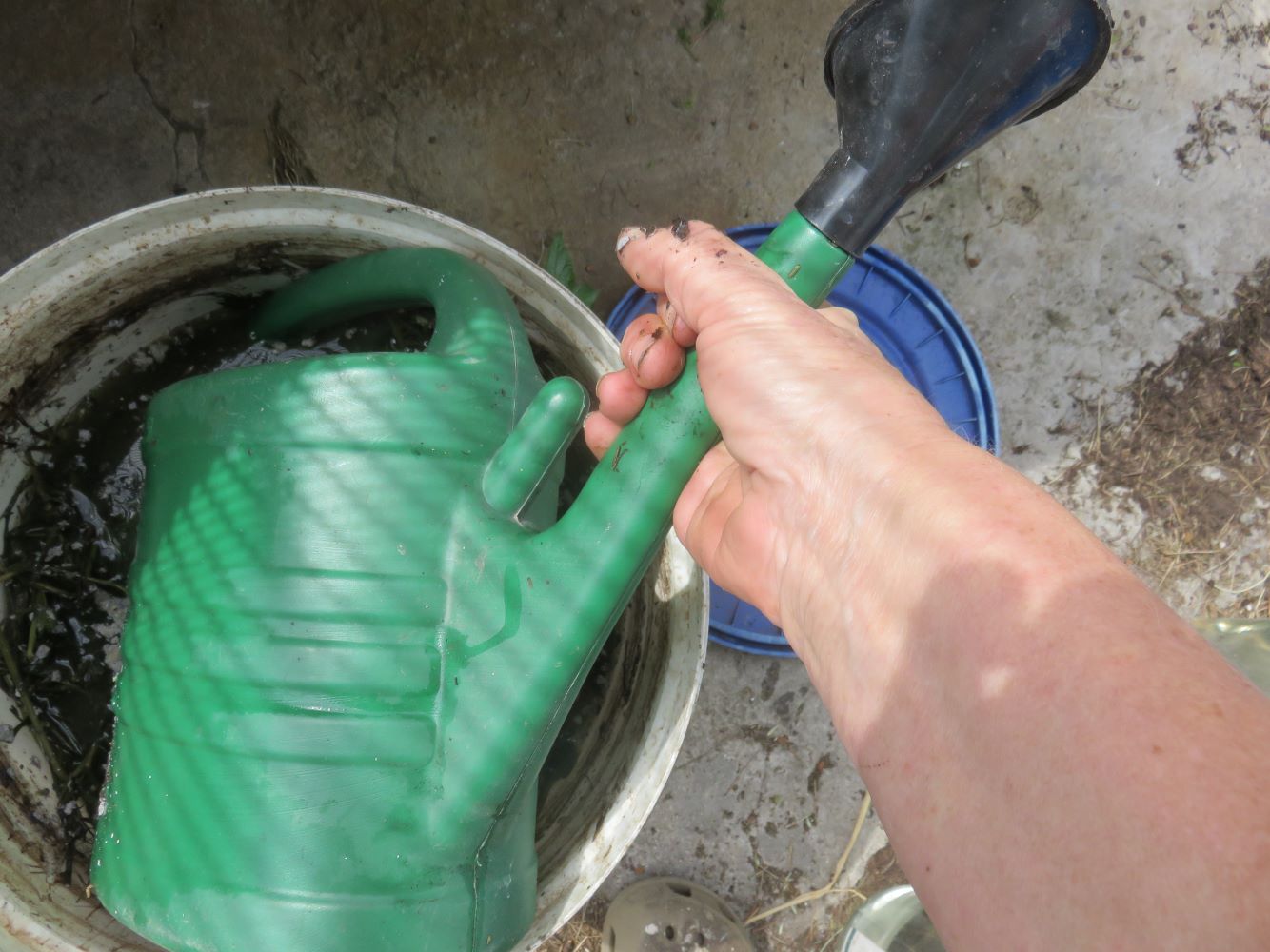Dear Reader, in this age of AI created content, please support with your goodwill someone who works harder to provide the human-made. Sign up in the righthand column or bottom of this page. You will receive my hand illustrated monthly newsletter RESTORE NATURE and access to the biodiversity garden design course as I write...and nothing else, I respect your time.
Brew up diversity
with plant manure or fermented leaves
Oct 26, 2020.
 Plants love plant beer made from fermented leaves, you will see.
Plants love plant beer made from fermented leaves, you will see.Regenerative gardening activity
10
Fermented leaves are a fertilizer which you can sprinkle on the ground in your garden, and over the plants themselves.
In the early stages before the ferment really gets going, they can be more like a tea. Steeping the plants in water allows the minerals and aromatic substances in them to seep into the water. You can use these fresh teas for fertilizing too, and for repelling insects if you use aromatic plants.
 covered with floating yeast covered with floating yeast |
 solids are good compost solids are good compost |
How to prepare fermented leaves
I explain how to prepare fermented leaves in this article, which I wrote rather long ago. I learned about these concoctions in a German book, where they were called 'Pflanzenjauche' or liquid plant manure. They do smell exactly like a very smelly cow shed.
But there is more to the story. As the fermented leaves progress in their fermentation, a rich soup of microbial life is created which you can use for inoculating your garden. The similarity of the smell to a cow's dung that has gone a bit off, makes me think the dominant microbes and the substances in it like green weeds and grass, may be similar to what is inside a cow's stomach.
Cows as we know, drive regenerative agriculture, and one of the most important things they add to soil is their beneficial and extremely diverse gut microbiome. So, I'm reckoning this is a way of doing a similar thing if you can't have cows, replacing them in other words, in yet another way, as I've shown with clipping, trampling and sprinkling urine. This is supposed to be for urban situations where cows can't be marched through the garden, and fresh liquid manure cannot be sprayed on the garden because it offends people.
However, it is very smelly. For that reason, in the picture of me scooping the fermented leaves into the watering can, you can see a blue lid in the background. With a lid on the vessel there is next to no smell. When the lid comes off, flies will be there in seconds.
I tend to leave my plant beer rather too long. It should be used just as it stops bubbling when it is still active rather than flat. You can sieve it to prevent blocking your watering can rose. They say some additives reduce the smell. I've not found this to be true.
As you sprinkle your fermented leaves on the leaves of your plants, they enrich the microbiome on the leaf surface, making the plants more resilient, as well as repelling insects with the smell, for a while. The smell doesn't last in the garden. But it will on your hands ! If you take a liking to this kind of activity you can make many kinds of ferments and fungal cultures for helping the garden, as taught me by Guerilla House.
 To deal with smells, cover bucket with a lid while brewing
To deal with smells, cover bucket with a lid while brewing------
home page with links to all the topics in regenerative gardening that I've researched and written on
------
The greenidiom regenerative gardening blog
------
------
all inclusive website blog, recent posts
Restore Nature Newsletter
I've been writing for four years now and I would love to hear from you
Please let me know if you have any questions, comments or stories to share on gardening, permaculture, regenerative agriculture, food forests, natural gardening, do nothing gardening, observations about pests and diseases, foraging, dealing with and using weeds constructively, composting and going offgrid.
SEARCH
Order the Kindle E-book for the SPECIAL PRICE of only
Prices valid till 30.09.2023
Recent Articles
-
Geography Research Task
Jan 31, 25 11:37 PM
To whom it may concern My name is Tanyaradzwa Madziwa and I am a matric student at Springfield Convent School. As part of our geography syllabus for this -
Eco Long Drop Pit Latrines Uganda
Nov 29, 24 02:45 AM
Good evening from the UK. My name is Murray Kirkham and I am the chairman of the International and foundation committee of my local Lindum Lincoln Rotary -
Landscape Architect
Oct 01, 24 10:42 AM
I so appreciate your informative description! Your experimentation and curiosity with the seeds, germination, and rearing of the maggot are exciting to
"How to start a profitable worm business on a shoestring budget
Order a printed copy from "Amazon" at the SPECIAL PRICE of only
or a digital version from the "Kindle" store at the SPECIAL PRICE of only
Prices valid till 30.09.2023





